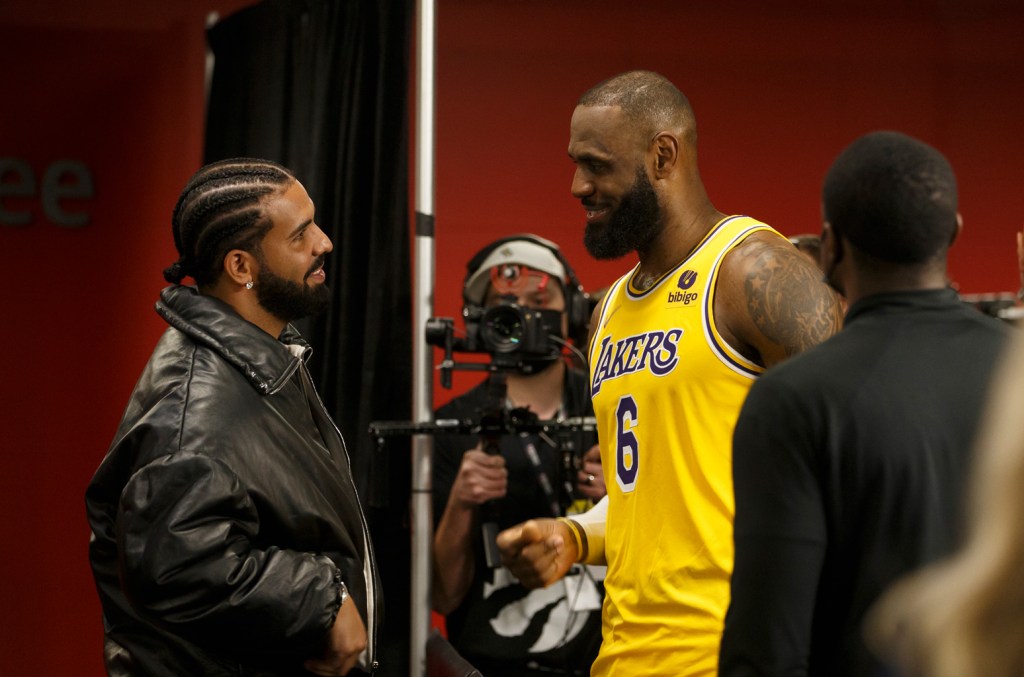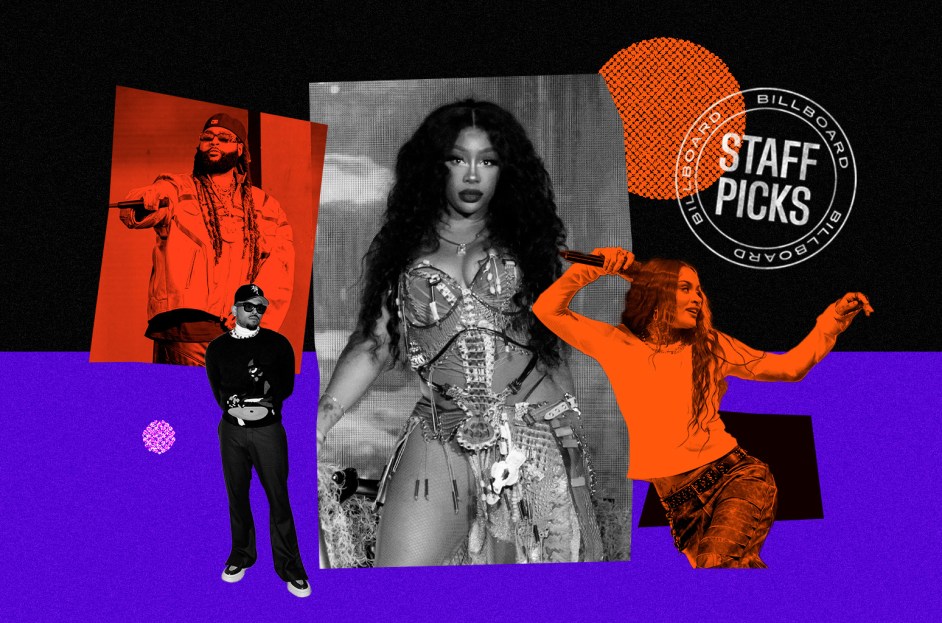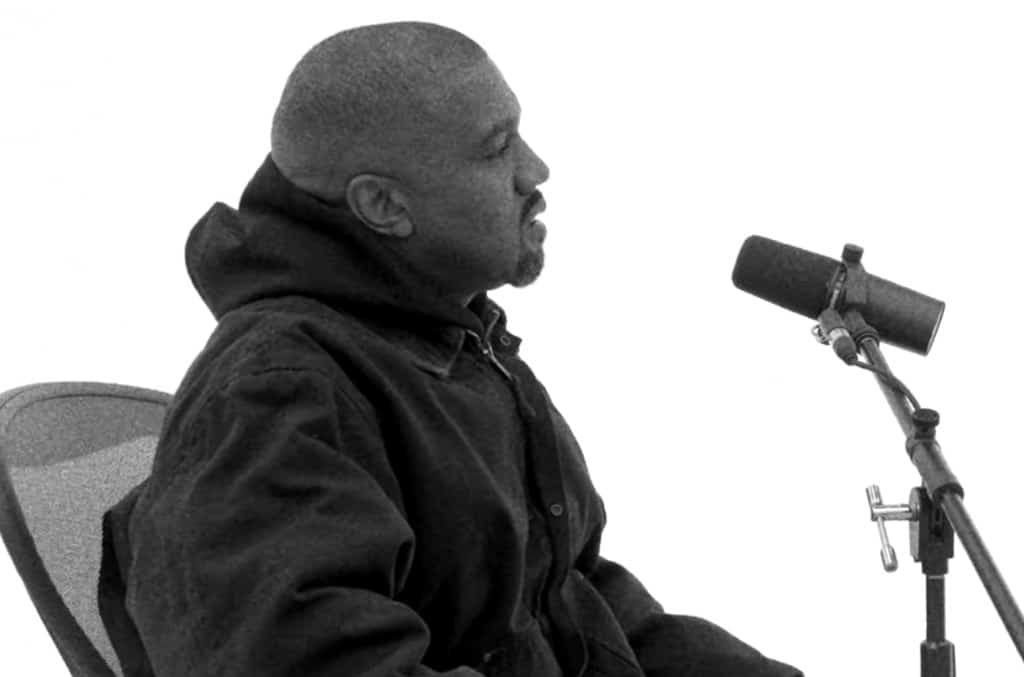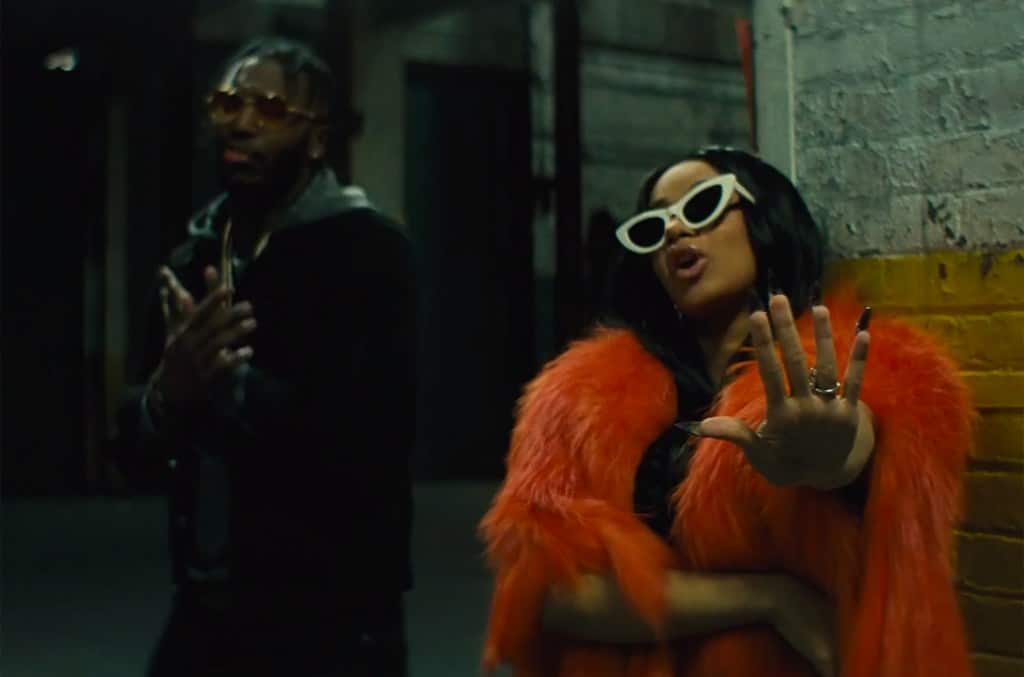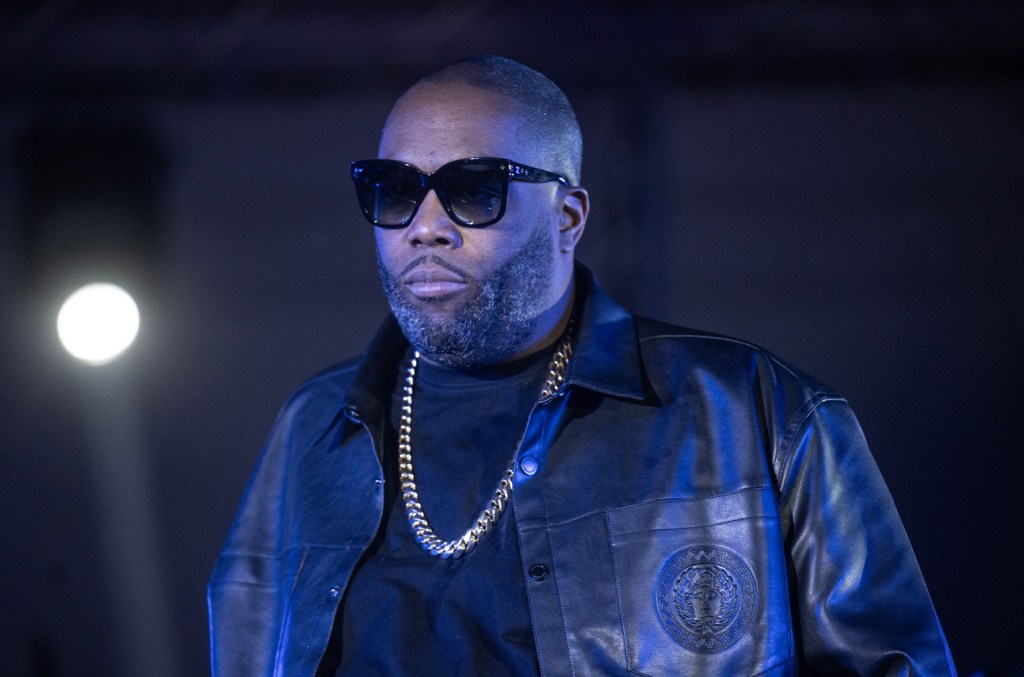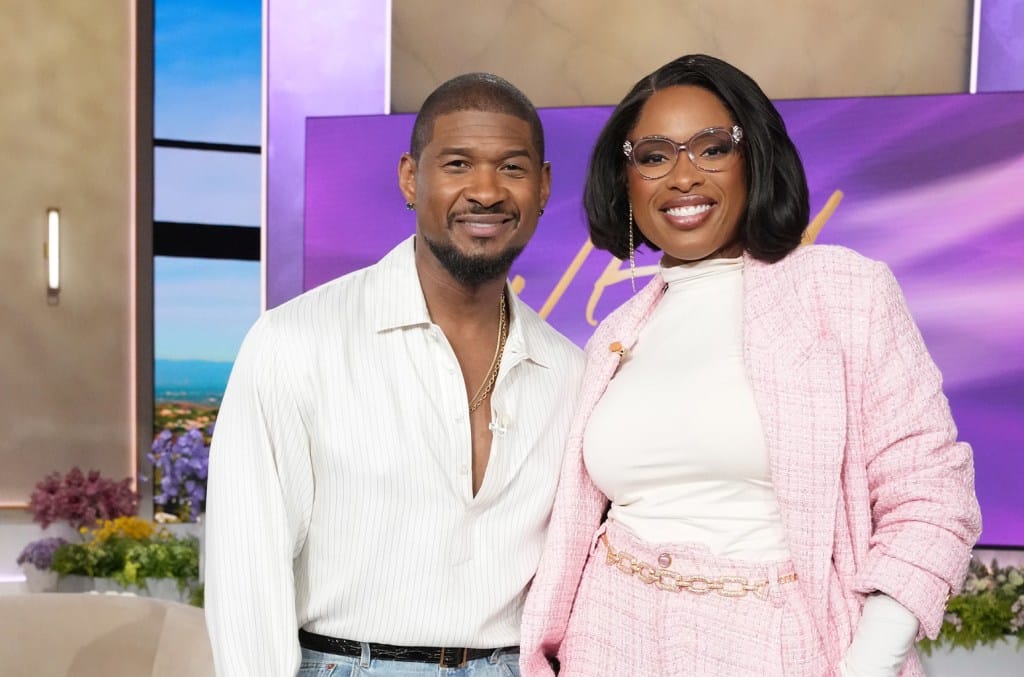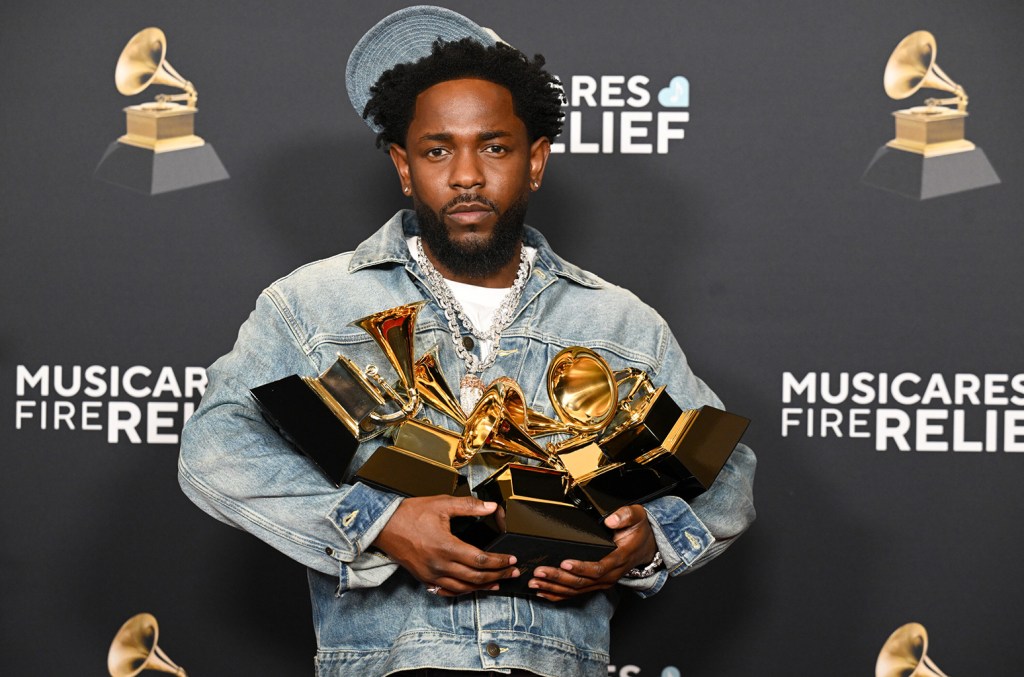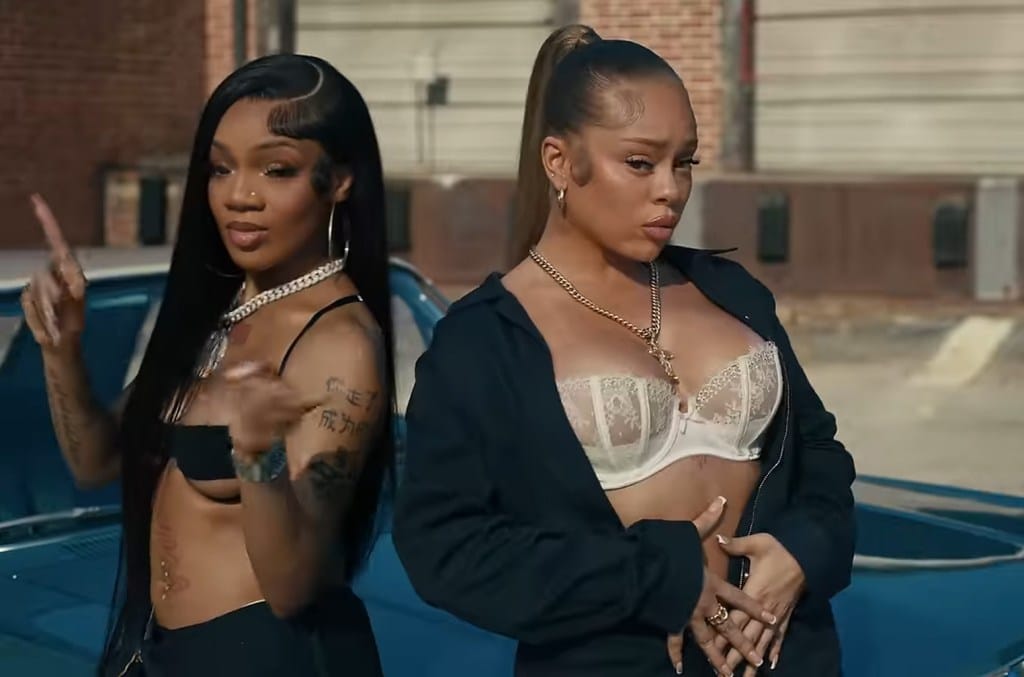R&B/Hip-Hop
Page: 117
The deterioration of Drake and LeBron James’ friendship appears to be part of the fallout from the Drizzy and Kendrick Lamar feud. Drake hit the stage for night two in Perth of his Anita Max Wynn Tour on Wednesday (Feb. 5), and in fan-captured video, flipped around some lyrics to “Nonstop” during the show to […]
Billboard’s editorial staff unveils its first-ever Hottest R&B Artists List, featuring proven veterans and rising stars in the genre.
Ye — formerly Kanye West — is advising all rappers to stand down from battling Kendrick Lamar outside of one circumstance.
West sat down with Justin Laboy for their The Download interview released on Tuesday (Feb. 4), which saw him give Lamar props, but he also exuded confidence he could get the “Not Like Us” rapper in a rap battle because he himself is a “psycho genius.”
“If you rap against Kendrick, you will lose,” Ye promised. “This man does this. You know in Street Fighter, you get Chun-Li, you get a certain kick, and no matter what, you can’t beat that thing?”
He continued: “If you rap against Kendrick Lamar, like Joe Budden said, ‘Never rap against Kendrick Lamar.’ If you rap against Kendrick Lamar, it’s a difficult task, but perhaps it’s something … I’m a psycho genius, so you know, it could be.”
Trending on Billboard
While Ye believes Drake suffered defeat at the hands of Kendrick, he doesn’t think anyone should count out a 6 God comeback in 2025.
“It was really challenging for me to make ‘Father Stretch My Hands’ and different things, and this man got ‘Work’ a top five song ever created in life and we doing the drums bringing Metro [Boomin] on,” Ye said.
“So Kendrick killed Drake — he’s dead,” Laboy claimed. Ye agreed, but doesn’t think it’s for good, going on to compare Drizzy to NBA star Steph Curry. “Yeah, for now,” West replied. “You can’t ever count out Steph Curry. That man might get 200 points in one song.”
Ye credited his frenemy Drake with adding “something to the algorithm to our frequency. He advanced us. Future advanced us and now Kendrick advanced the frequency.”
Yeezy briefly injected himself into the Drake and Kendrick feud last year when he took shots at Drizzy on a remix of “Like That.” West and Lamar went bar-for-bar on The Life of Pablo‘s “No More Parties in L.A.” anthem in 2016.
Watch the entire interview below.
In an interview with Justin LaBoy’s The Download podcast his week Ye revealed that his wife, Bianca Censori, has helped him realize that he is on the autism spectrum. “My wife took me because she said, ‘Something about your personality doesn’t feel like it’s bipolar, I’ve seen bipolar before,’” Ye said of what he called the revelation that he does not suffer from bipolar disorder — as he’s previously shared — but that he has ASD (autism spectrum disorder).
Explore
Explore
See latest videos, charts and news
See latest videos, charts and news
“And come to find out, it’s really a case of autism that I have,” he said. According to the Cleveland Clinic, “autism is a spectrum in the sense that there’s a very wide range of personality traits, strengths and challenges you might have when you’re autistic – just as there is for any other person.” ASD is defined as a “difference in brain functioning that affects how a person communicates and interacts with others.”
Trending on Billboard
West was involuntarily hospitalized in 2016 after suffering what was described as a “psychiatric emergency” that manifested as “temporary psychosis due to sleep deprivation and dehydration.”
According to Ye, the new understanding of his ASD has helped him put some of his behavior into perspective. He noted that he went to an unnamed doctor that he claimed had worked with other famous people — including, according to Ye, Justin Bieber — which is when Censori told him that he might have the wrong mental health diagnosis; West’s former wife, Kim Kardashian, opened up in 2019 about what was them deemed Ye’s bipolar diagnosis.
“Autism takes you to a Rain Man thing where you’re like, ‘Oh man, I’m gonna wear this [Donald] Trump hat ‘cause I just like Trump in general,” he said of his support of former, and current President Donald Trump, noting that he has not taken “the medication” — he did not specify what medication — since he found out about the incorrect bipolar diagnosis. “And when people tell you to not do it you just get on that one point… and that’s my problem, when fans tell me to do my album a certain way, I’ll do it the opposite way, just because.”
West talked about how difficult it is for those in his orbit to help him because “this is like a grown man, you can’t tell him. You can’t take control of his bank account. You can’t control what I’m saying on Twitter. But a lot of what was sending me into the episodes… my dad and a bunch people said, ‘You can’t leave Adidas why would you leave all that money?,’” he added in reference to Adidas cutting off ties with Ye in 2022 after years of a lucrative partnership in the wake of the rapper’s string of hate-filled, antisemitic rants. “The constant feeling of not being in control, spun me out of control.”
As for not taking his medication, West said he’s trying to find “stuff that doesn’t block the creativity,” claiming that it’s “worth a ramp-up” if it results in creativity.
West is still working on rebuilding his formerly formidable fashion and music empire in the wake of the rapid meltdown in his fortunes following his 2022-2023 spree of provocative, antisemitic comments, which included a tweet announcing he was going “death con [sic] 3 on Jewish people, repeated praise for Holocaust mastermind Adolf Hitler and the parading of the white supremacist phrase “White Lives Matter” on shirts at Paris Fashion Week.
He was rapidly dropped by the Gap, Adidas, Balenciaga and his agents at CAA and has his social media accounts suspended or revoked in a fallout so complete that the former — and according to him, again — billionaire said in February of last year that he nearly went bankrupt.
West was in headlines again over the weekend with is latest headline-grabbing provocation, when he walked the red carpet at the 67th annual Grammy Awards fully clothed while Censori modeled a see-through nude dress that exposed her private parts.
Watch West discuss his ASD diagnosis below.
Lil Wayne is gearing up to make waves ahead of Super Bowl LIX, teasing fans with a mysterious announcement set for Thursday, Feb. 6—just days before the big game in New Orleans.
Explore
Explore
See latest videos, charts and news
See latest videos, charts and news
While speculation runs wild, the rap legend is keeping details under wraps, fueling anticipation with a cryptic Instagram Story video.
“Y’all know I’m not going to be there this week, which means I guess there’s a seat to fill,” Wayne said. “Shout out to New Orleans, but I’ve been working on something very special. I got something exciting coming for you Thursday, the 6th. Until then… I’m chillin’.”
Trending on Billboard
Though he hasn’t revealed specifics, fans are already theorizing what Tunechi has in store. Some are hoping for a surprise single or project announcement, while others are speculating about a Super Bowl-related activation.
With his long-teased album Tha Carter VI expected to drop this year, the timing aligns with what could be a major musical moment.
Back in December, Wayne recently publicly addressed his absence from the Super Bowl Halftime Show, where Kendrick Lamar will headline. Some fans initially expected Weezy to join Lamar on stage, given their past collaborations and mutual respect.
However, Wayne confirmed in a recent interview that he wouldn’t be attending the game and had spoken directly with Kendrick to clear up any misunderstandings.
“I’ve spoken to him, and I wish him all the best and I told him he better kill it,” Wayne told Skip Bayless on his show in December, during which the host revealed that he remains “baffled and angry” that his guest was not tapped to perform on the biggest stage there is in his own backyard.
“For whatever reason I believe it’s over my head,” Wayne said as part of what he described as the “general” reason why he thinks he was passed over for the gig during what is traditionally the most-viewed TV program of the year. “I don’t know why, period. Obviously I believe that it’s perfect… I do not know why.”
Wayne’s Carter series has been a dominant force on the Billboard 200, with Tha Carter V debuting at No. 1 in 2018 with 480,000 equivalent album units—his fourth chart-topping album. His most recent project, Tha Fix Before Tha VI, was released in 2023, serving as a precursor to the highly anticipated Tha Carter VI.
In 2023, the New Orleans rapper dropped the mixtape Tha Fix Before That VI (Bonus) featuring Jon Batiste, Euro, Cool & Dre, Fousheé, TheNightAftr, and DMX and he and 2 Chainz released Welcome 2 Collegrove, the follow-up to their 2016 collab album ColleGrove.
While he hasn’t released a full-length project yet this year, the Young Money boss has been active feature-wise. He appeared on French Montana‘s “Splash Brothers” alongside Rick Ross, Flau’jae‘s “Came Out A Beast,” DJ Premier‘s “Ya Don’t Stop” with Ross again and Big Sean, and he was featured on Ye and Ty Dolla $ign‘s Vultures 2 song “Lifestyle.”
When the news broke of Lamar’s upcoming performance in September last year, Weezy was very candid about being passed over. “First of all, I want to say forgive me for the delay. I had to get strength enough to do this without breaking,” said a somber Wayne in an Instagram post at the time.
“I’mma say thank you to every voice, every opinion, all the care, all love and support out there. Your words turned into arms and held me up when I tried to fall back.”
At the time, he said the news “Hurt. It hurt a lot. You know what I’m talking about. It hurt a whole lot. I blame myself for not being mentally prepared for a letdown. And for automatically mentally putting myself in that position like somebody told me that was my position. So I blame myself for that. But I thought that was nothing better than that spot and that stage and that platform in my city, so it hurt. It hurt a whole lot.”
Pardison Fontaine revealed on Tuesday (Feb. 4) that his highly anticipated “Toot It” collab with Cardi B is arriving on Friday, Feb. 7. “You guys keep asking for ‘Toot It.’ Where’s ‘Toot It’? Where’s ‘Toot It’ at? Can we get ‘Toot It’? Here go the song, here go ‘Toot It.’ Take it, play it, do […]
Killer Mike has reportedly filed a lawsuit against the security firm that executed his arrest at the 2024 Grammy Awards in Los Angeles.
Per Rolling Stone, Killer Mike — born Michael Render — claimed that S & S Labor Force attempted to “degrade, embarrass and physically hurt” him during the arrest, which saw the Run The Jewels rapper escorted out of Crypto.com Arena on Feb. 4, 2024.
Filed on Monday (Feb. 3) in Los Angeles County Superior Court, Mike made claims of assault, battery, intentional infliction of emotional distress, and false arrest and imprisonment.
“Defendants wrongly caused plaintiff to be falsely arrested and had him placed in jail during the remainder of the Grammy Awards Ceremony,” the suit reportedly states. “Plaintiff was therefore deprived of the valuable opportunity to be present at the awards ceremony where he was scheduled to appear on primetime television in front of a huge international audience to appear and speak and be recognized on the telecast for his historic achievements.”
Trending on Billboard
S & S Labor Force called Mike’s legal allegations “unfounded” in a statement to Rolling Stone. The security company did not immediately respond to Billboard‘s request for comment.
Shortly after the arrest, sources close to Billboard relayed that the altercation stemmed from an issue with a Grammy Awards security guard over media access credentials outside the Peacock Theater where the pre-show was taking place.
The confrontation took place about an hour after Killer Mike won best rap album for Michael and best rap song for the track “Scientists & Engineers” with André 3000. During the scuffle, Mike allegedly shoved a female security worker, after which LAPD officers reported to the scene and handcuffed the rapper.
Killer Mike was charged with one count of misdemeanor battery and released without bail. However, the Los Angeles City Attorney decided not to pursue the charges.
“Even though plaintiff sought to explain the situation in a respectful way, defendants used physical force to invade plaintiff’s bodily autonomy, using hands to touch plaintiff’s person in a manner both offensive and harmful without any justification or provocation from plaintiff, and to restrain him against his will,” the suit continues.
Killer Mike is seeking damages for the incident.
In an appearance on V103’s Big Tigger Morning Show shortly after the 2024 arrest, Killer Mike downplayed the situation, which he called a “speed bump.” “I won a Grammy,” he said. “We party all night. Shout out to my record label. Ain’t nothing had happened, man. But we winners. That’s it.”
To no surprise, Usher brought his A-game to The Jennifer Hudson Show on Tuesday (Feb. 4). Skating his way onstage to raucous applause and shout-outs, the eight-time Grammy Award winner had plenty to talk about — including a key piece of advice he had for Super Bowl Halftime headliner Kendrick Lamar. Having experienced his own […]
When Kendrick Lamar dropped his surprise album GNX, fans wondered why he decided to leave “Not Like Us” off the project. Now, we finally know the reason why, at least according to a TDE executive. Terrence “Punch” Henderson was recently asked by a fan on X why the Compton rapper “didn’t include the mega smash […]
While Set It Off hit theaters before Latto and GloRilla were born, they’re still familiar with the ’90s classic. Big Glo and Big Mama teamed up on Tuesday (Feb. 4) to release their “Procedure” visual, which originally landed on Glo’s Glorious album this summer. Explore See latest videos, charts and news See latest videos, charts […]

 State Champ Radio
State Champ Radio 